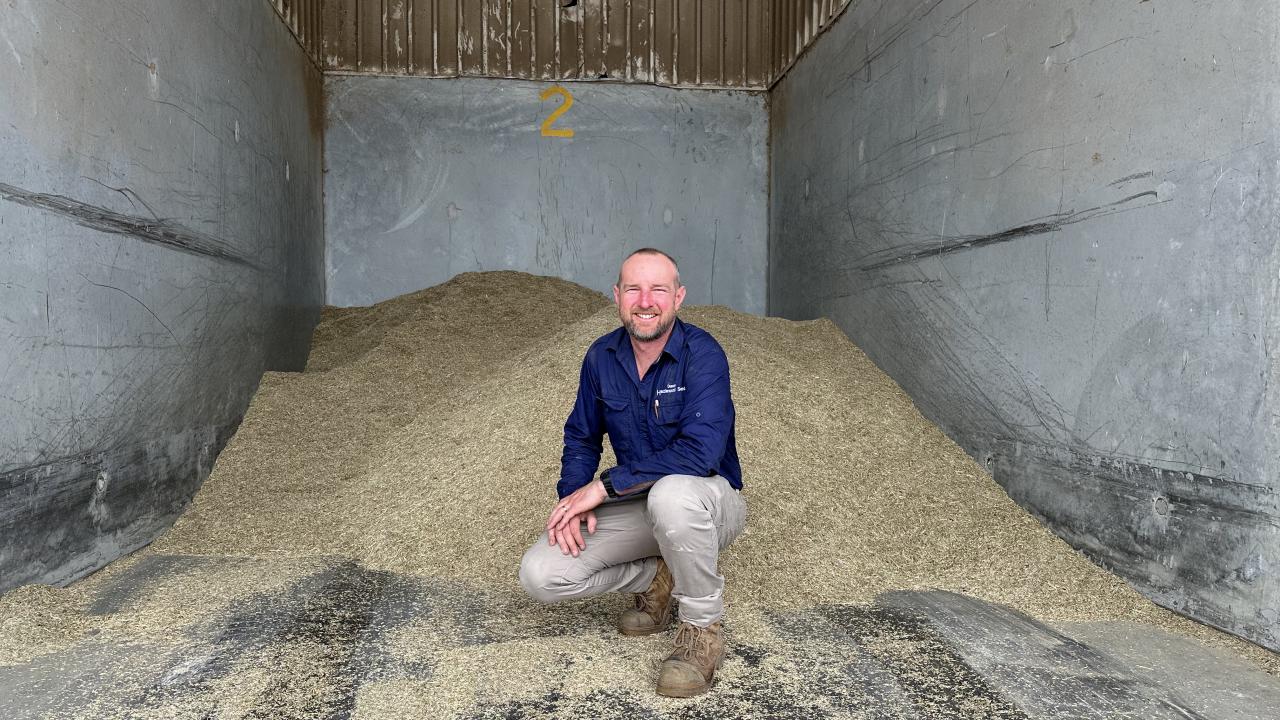Slow start to harvest season

HARVESTING of some of Tasmania’s major crops is off to a slow start after an unusual season so far.
While January is peak harvest season for crops including cereals, poppies and grass seed, harvesting in some areas is not yet under way.
Extractas Bioscience field operations manager Noel Beven said they were waiting for the right weather conditions before harvesting could get into full swing.
“We have started in a very small way with a couple of early crops,” he said.
“We expect to start in earnest this week, if the weather allows us to.
The crop is generally a bit later, probably a week later than we expected.”
Mr Beven said mild weather and late season rain in December had slowed the crop development and had impacted other crops as well.
“It has been a most unusual season,” he said.
“In the south we had to wait in September until things dried out so we could do things then it dried out and we didn’t get really anything until that December rain so it has been unusual.”
Mr Beven said the huge totals from December rain has caused significant crop losses in some areas.
“We certainly lost a substantial amount of crop and some growers lost their entire crop,” he said.
“Having said that though, most of the other crop gained from the rain so it has ended up probably being a bit better than we initially thought.”
Mr Beven said generally speaking there are some nice crops out there.
“The rain has also seen some crops continue to flower which is good and bad.
“Good from the point of view there will be more capsules but bad from the point of view there will be an uneven harvest.”
With harvest expected to get into full swing soon, Mr Beven said they were hoping harvesting could be finished up by mid-March.
XLD Commodities chief executive officer John Tuskin said this year’s cereal harvest was also off to a steady start.
“It’s very slow at the moment,’ he said.
“Even before the weather event last weekend which was very patchy it was trickling in. Some growers were on par with last year but a lot are a bit behind.”
Mr Tuskin said canola plantings this year were significantly down com pared to the previous season, and he estimated a reduction this season of about 40 per cent.
“I think it’s rotation for the ones that we’ve spoken to, they haven’t knocked it out they just haven’t put as much in,” he said.
“There are probably some smaller growers who have persisted for a couple of years and haven’t really had a successful crop so they just wouldn’t have planted this year so that’s our take on that.”
After talking with growers however, Mr Tuskin said it was likely canola would continue to be an important part of many farmers’ rotations. While they have had a number of different cereals coming in, Mr Tuskin said volumes so far had been fairly small.
“I think it could be one of those drawn out ones,” he said.
“We were tipping those couple of days of hot weather last week it might have just gone crazy, but we ended up only opening for short hours Saturday and were closed on Sunday.”
Mr Tuskin said the tim ing of the cereal harvest also coincided with grass seed which meant many farmers would prioritise grass seed crops which had already been windrowed.
While torrential rain in early December caused damage for many crops, Mr Tuskin said it was ideally timed for most cereals and they have seen top quality wheat coming in so far.
Grass seed harvesting is also starting to ramp up now.
Duncan Heazlewood from Heazlewood Seeds said it was still early days in the ryegrass harvest season, which had seen some interruptions due to rain events in the past couple of weeks.
“It has been a bit stop start,” he said. “Quality is fine, and yields are good."
“Growers who have the infrastructure to dry their own seed have been using that to good advantage to harvest around the rain forecast so I think that sort of investment is paying off this year.”
Mr Heazlewood said they were expecting things to start getting very busy later over the next few days with forecasts of dry and warm weather in many regions.




Add new comment